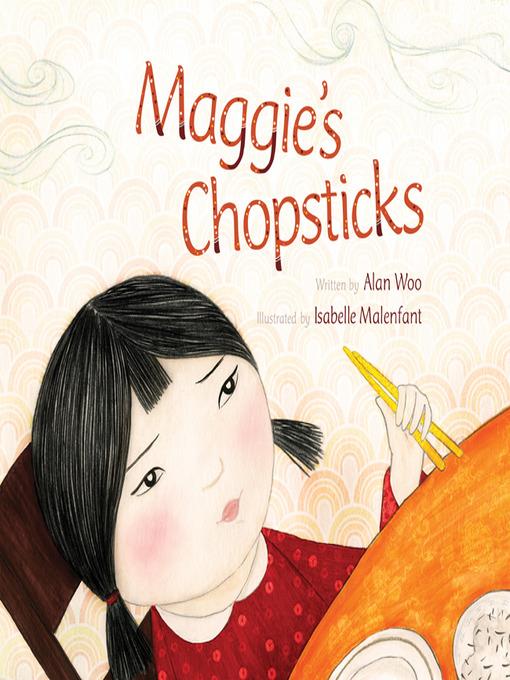
Maggie's Chopsticks
فرمت کتاب
ebook
تاریخ انتشار
2012
Lexile Score
740
Reading Level
0-2
ATOS
3.1
Interest Level
K-3(LG)
نویسنده
Isabelle Malenfantناشر
Kids Can Press Ltd.شابک
9781894786201
کتاب های مرتبط
- اطلاعات
- نقد و بررسی
- دیدگاه کاربران
نقد و بررسی

July 15, 2012
Learning to use something new is never easy. Young Maggie has a new set of chopsticks, but everyone says she is using them incorrectly. Evocative and appealing digitally enhanced watercolors show how Grandmother, Mother, Brother and Sister eat with their chopsticks (shoveling, popping, plucking and dancing, respectively), but Maggie can't seem to follow any of their examples. The Kitchen God has nothing helpful to say, and Maggie's private practicing doesn't help her either; it's not until Father offers praise and comforting words about individuality that Maggie finds her own style, "like a butterfly emerging / from a long winter's sleep." Though something seems lost here--it is difficult to see whether the setting is China or elsewhere, whether using chopsticks with style is a cultural phenomenon or based on Maggie's own observations, and whether Maggie improves through practice, simply accepts herself or both--the story is well-intentioned, the character plucky and hardworking, and the illustrations warm and striking. Youngsters learning to cope with eating utensils of any sort will appreciate Maggie's efforts and urge her on to success. (Picture book.3-5)
COPYRIGHT(2012) Kirkus Reviews, ALL RIGHTS RESERVED.

September 1, 2012
PreS-Gr 2-Maggie comes from a family of unique individuals, all with their own opinions and style, each one of them willing to give advice on how the child should hold her new chopsticks. Maggie listens to all of them in turn, weighing her options. Grandmother suggests using chopsticks in a rather forthright way, while Sister suggests a more graceful approach. As Maggie begins to worry that she may never find her own style, her father suggests that she be herself. Because of his encouragement, she is able to find just what works for her. Maggie comes from a traditional Chinese family, and she clearly wants to make them proud. Woo writes in a way that transforms a story about holding utensils into a poetic journey. Not only is Maggie learning the mechanics of chopsticks, but she is also learning to be herself. Language such as "click-clack-clicketing" and, as she circles her chopsticks above her fish tank, "the fish flee/from the wooden fingers/reaching through their sky of blue" makes children want to turn the page and find out what else Maggie will experience. In Malenfant's vibrant illustrations, deep reds and shimmering oranges leap from the pages. All children are fascinated with holding utensils, whether a fork, a spoon, or chopsticks, and are anxious to please adults while staking out their own individuality, making this a great choice for kids of all ethnic backgrounds.-Cass Mabbot, Seattle Public Library, WA
Copyright 2012 School Library Journal, LLC Used with permission.

























دیدگاه کاربران